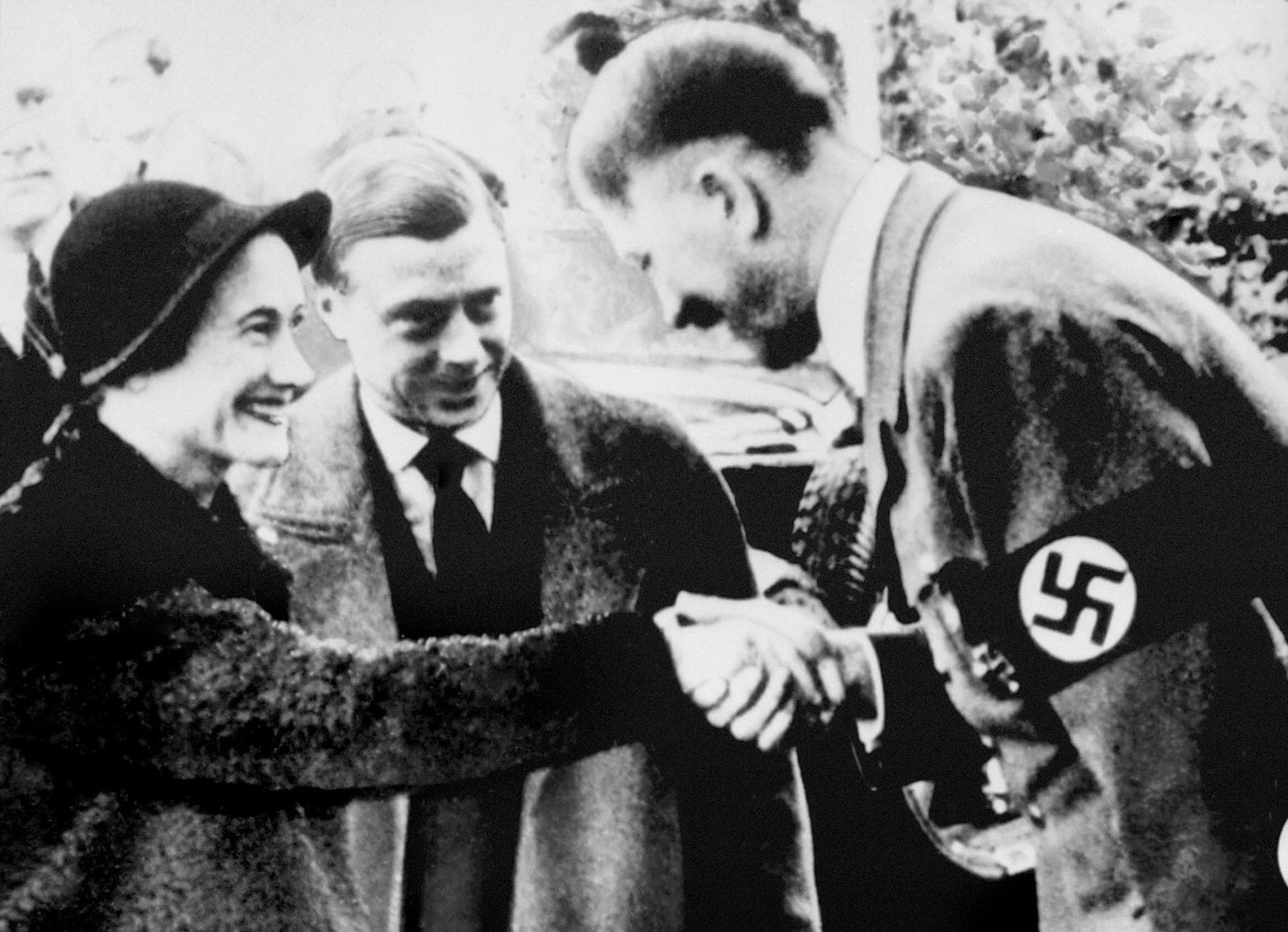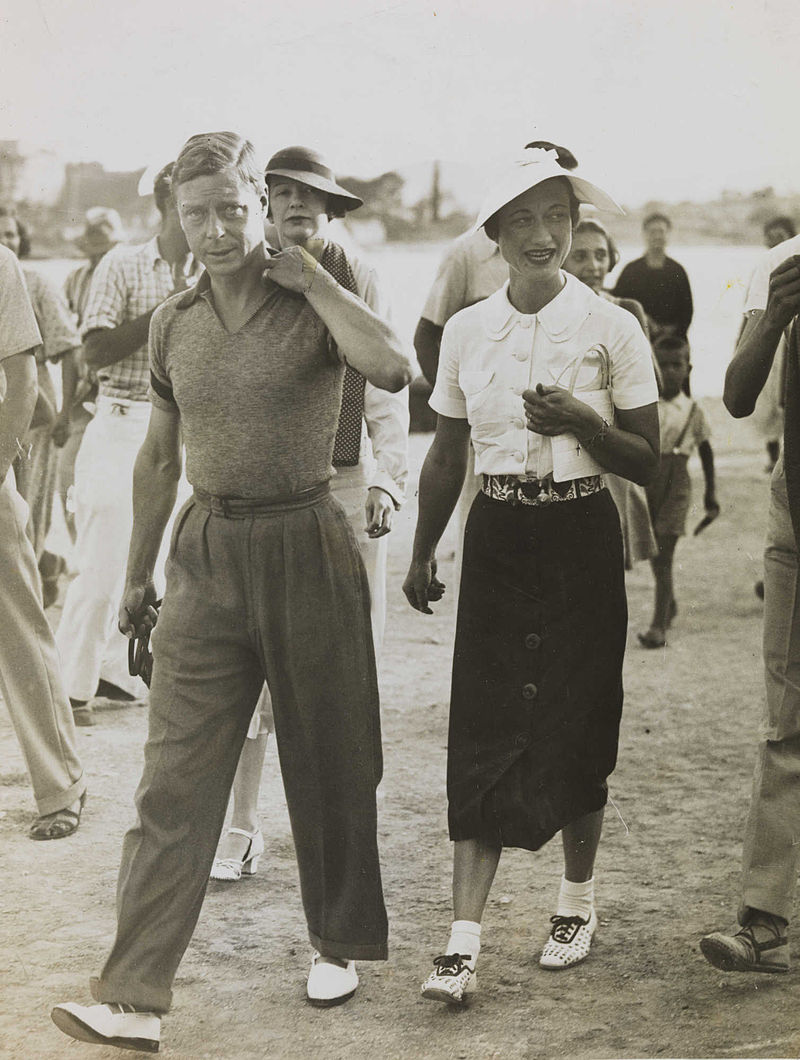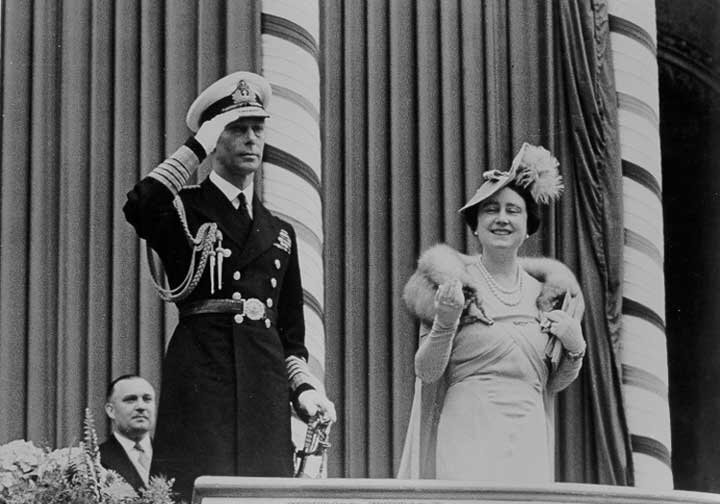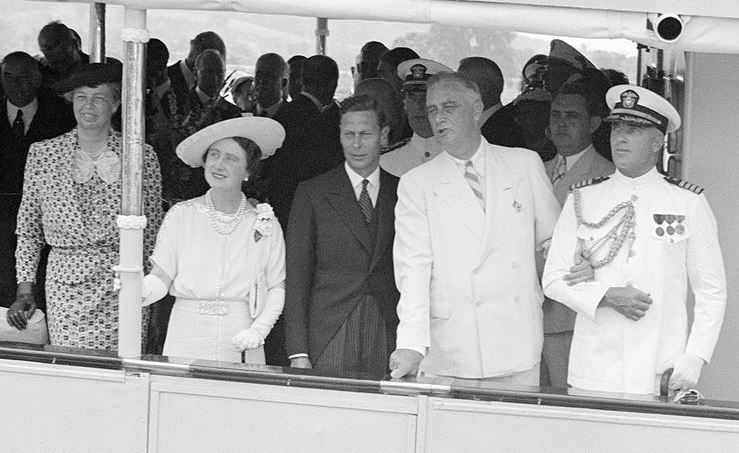Abdication May Have Saved the World From Hitler
How does the story of a British king, an American socialite and a taboo marriage that ended a king’s reign possibly show the hand of God in history?
The duke and duchess of Windsor greet Adolf Hitler during a visit to Munich on Oct. 23, 1937.
But there was a problem: the single Edward, prior to becoming king, had an ongoing romantic relationship with an American socialite named Wallis Simpson. The problem was she was still Mrs. Simpson—still technically married to her second husband, British shipping executive Ernest Aldrich Simpson.
However, in October 1936, Mrs. Simpson filed for divorce as her relationship with the king had intensified. On Nov. 16, the king met with the British prime minister and informed him of their intent to marry.
The crisis
To put it mildly, the news of the king’s intention to marry Wallis Simpson was not met with enthusiasm. The prime minister immediately informed the king that Parliament and the people should have a voice in who would become the wife of their king—and that there were already grave concerns about Mrs. Simpson taking that role. As news of the impending engagement spread, the governments of multiple Commonwealth nations (over whom the king was also sovereign) expressed their disapproval at the prospect.
Edward and Wallis on vacation in 1936.
As king of England, Edward also was the head of the Church of England—which, at that time, officially did not allow marriage between a member and someone who was divorced. (Of course, you may automatically think of the Church of England’s founder, King Henry VIII, and his desire to end his marriage to Catherine of Aragon in order to marry Anne Boleyn. But remember, Henry broke from Rome to annul his marriage, not to divorce Catherine.) The idea of the head of a church that didn’t allow divorce being married to a woman who had divorced twice appalled many in Great Britain.
The abdication and the rise of King George VI
Ultimately, Edward chose Wallis Simpson over the throne he had inherited from his father. On Dec. 10, 1936, Edward signed the abdication papers that would end his 326-day rule.
Upon his resignation, his younger brother Albert was crowned as King George VI. Of course, he was the father of the present Queen Elizabeth II.
King George VI and his wife on a royal visit to Canada in 1939.
His biographer Philip Ziegler described him this way: “He was not glamorous, not eloquent, in no way dashing. He was high-principled, sober, loyal, reliable, honourable, extraordinary only in his ordinariness. … He was a good king; more important than that, he was a good man.”
In 1939, just a couple years later, World War II broke out. King George VI, along with his Prime Minister Winston Churchill, played a key role in unifying the Commonwealth against Nazi Germany and inspiring courage and sacrifice throughout the war. King George and his family understood the importance of their example of service. For example, when London was being bombed, George and his family willingly stayed in London despite being offered safe refuge in Canada.
What he lacked in oratorical eloquence, he made up for in example. As a 2011 article about King George VI in The Telegraph put it: “This vulnerable and stammering king proved to be exactly the right man at the right time” (Nigel Farndale, “The King’s Speech: The Real Story”).
He was also the first reigning British king to visit the United States in June of 1939. This trip proved to be significant in strengthening the relationship of trust and friendship between Great Britain and the United States that would be crucial to their alliance throughout the war.
The king and queen and the Roosevelts during their 1939 visit to the United States. 
Had King Edward VIII not abdicated, his younger brother and the present queen may not have ascended to the throne, and history may have been much different.
Troubling discoveries about Edward
But the story does not end there.
In recent years, disturbing facts have been uncovered about Edward—the man who could have been Britain’s wartime king. Formerly undiscovered government documents and photographs have revealed why his reign during World War II could have been a catastrophe for Britain, the monarchy and the world.
After his abdication and wedding to Wallis Simpson, the newlyweds left England to live in a self-imposed exile in continental Europe (Spain, Portugal and France). After the outbreak of World War II, Winston Churchill realized the danger of having an estranged royal living on the continent. Churchill feared the Nazis might try to kidnap Edward and either hold him hostage or try to install him on the British throne as a puppet monarch if Nazi Germany was able to defeat England. In fact, history has shown this fear to be warranted and that Hitler had such a plan, code-named “Operation Willi.”
Thankfully, Churchill was able to transport the couple to the Bahamas before the Nazis could get him.
But why would Hitler be interested in Edward as a puppet king?
Historical evidence has revealed the reason: both Edward and his wife, Wallis, were Nazi sympathizers. In October 1937, shortly after his abdication and having been given the title Duke of Windsor, Edward and Wallis visited Germany and were greeted as heroes.
Andrew Morton, author of 17 Carnations: The Royals, the Nazis, and the Biggest Cover-Up in History, wrote: “They were met by marching bands and cheering crowds, the duke infamously exchanging Nazi salutes with his hosts. The duke even enjoyed a 50-minute private conversation with Hitler at his mountain retreat” (“How Britain Covered Up the Friendship Between Hitler and Edward VIII”).
It seems that Edward was supportive of many of the Nazi reforms of Germany, supported British appeasement of Germany after the invasion of Poland and may have had anti-Semitic views. In 2015, photographs emerged in a British auction that shows Edward raising his arm in the Nazi salute surrounded by high-ranking Nazi officers.
Consider, how might the history of World War II have been different if a Nazi sympathizer had sat on the British throne?
Consider, how might the history of World War II have been different if a Nazi sympathizer had sat on the British throne? Albert Speer, Hitler’s architect, quoted Hitler in his memoir as saying: “I am certain through him [Edward] permanent friendly relations could have been achieved. If he had stayed, everything would have been different. His abdication was a severe loss for us.”
Let’s speculate how history could have been different if Edward had not abdicated. Could Edward have influenced Britain to make peace with Hitler or wait longer to declare war on him? Had Britain remained neutral longer, or made peace with Hitler, the United States would not have been able to create a western front with the British. The D-Day invasion would have been impossible without the British Isles as a base of operations. The Soviet Union simply could not have defeated Hitler in the east without the help of the Americans and British on the western front.
Also, consider what Edward’s reign during World War II could have done to the British monarchy. If the British government and people supported war with Germany against the will of the king, could it have led to Edward being deposed? Could his character and selfishness have caused public opinion to turn against the monarchy and possibly created an impetus to end it? How might the history of the crown have been different without monarchs with the character of George VI and Elizabeth II?
The prophetic implications
All of these alternative scenarios didn’t happen for a reason. As we show in our booklet The United States, Britain and the Commonwealth in Prophecy, the book of Genesis prophesied the rise of the British Empire and the United States. Though they will fall in the future, that time was not during World War II. The Hitler-Mussolini axis was not the final revival of the Roman Empire, which will dominate geopolitics before Jesus returns. It was not destined to succeed in conquering Europe, defeating Great Britain or achieving global domination. To learn more, download our booklet The Book of Revelation: The Storm Before the Calm.
The Bible declares that God has power over the great forces of history: “He removes kings and raises up kings” (Daniel 2:21). He uses this power to accomplish His will and plan through history. King Edward VIII was a man who seemingly wasn’t fit to be king during what Winston Churchill called Britain’s “finest hour.”
Is it possible that God used these events to preserve the British crown and save Britain and the world from Adolf Hitler?
To learn more about God’s intervention in the history of the British and American peoples, read pages 98-103 of our booklet The United States, Britain and the Commonwealth in Prophecy.
Date Posted: December 9, 2016

 by Erik Jones
by Erik Jones

